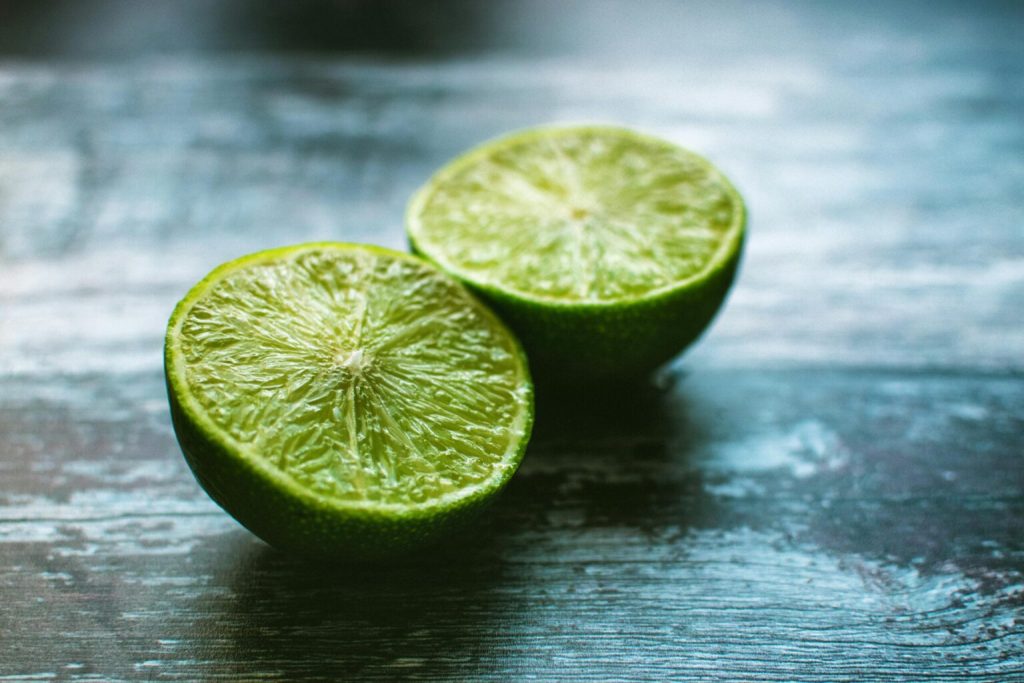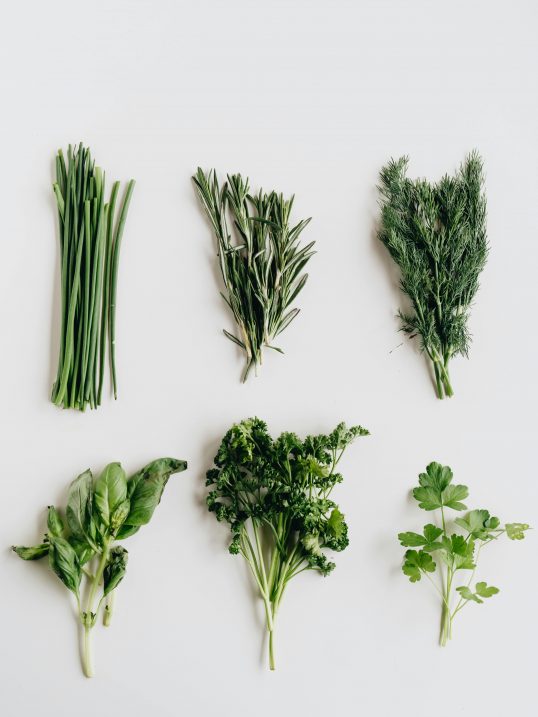What do you do when you need fresh lime juice and haven’t gone any? You improvise!
Depending on the dish you intend to prepare, there are a handful of great substitutes for lime juice, from ordinary to specialty.
You only need to remember the relative quantities of each type of substitute when swapping with lime juice and you’re good to go.
Let’s dive into some of the best substitutes for when you’re out of lime juice.
Reasons for Using Lime Juice Substitutes
While the most common reason to look for lime juice substitutes is being out of stock, there are others.
Maybe someone in your family is allergic to citrus fruits. In such cases, you must avoid limes and other citrus alternatives altogether. Thankfully, there are other safe options you can substitute with; for instance, vinegar or cream of tartar.
Another reason to avoid lime juice could be the adverse effects caused due to the intake of certain types of medication. For instance, lime juice is known to inhibit the breakdown of some medicines by the liver, which could compound the medication’s effects or countereffects.
Although lime juice is touted to aid digestion, people diagnosed with gastroesophageal reflux disease (GERD) are generally advised to avoid consuming citrus fruits as this could worsen the symptoms of acid reflux.
Read More: Best Substitutes for Shallots
Top Substitutes for Lime Juice
Let’s look at some popular substitutes for lime juice that will work in a pinch.
Lemon Juice
This makes the top of the list for obvious reasons: lemons are similar to limes and come from the same citrus family.
Compared to small and round limes, lemons are bigger and oval-shaped, which also means you get more juice per lemon. Moreover, lemons provide nearly twice the quantity of Vitamin C than limes for the same serving size.
You might think that should make lemons taste twice as sour.
However, that’s not true. Lemons are less tart than limes and slightly on the sweeter side.
In terms of acidity or pH value, lemons and limes are quite similar. This means in cooking and baking where acidity is a factor, you can swap lime juice with an identical quantity of lemon juice.
Making homemade buttermilk?
No problem! Lemon juice works just as great as lime. You can also get away with this when whipping up guacamole or avocado salsa, or mixing a mojito or margarita.
However, subbing lime with lemon might not work well in all recipes. Key lime pie is one example where the tart and citrusy flavor profile of lime is non-negotiable.
Vinegar
Vinegar is a great alternative to lime juice when a recipe calls for tartness or acidity.
But if you are thinking of adding a dash of vinegar to your margarita or a lime-based dessert, think again.
Vinegar consists of acetic acid; whereas, lime juice contains citric acid. While acetic acid has a pungent smell and a tart flavor profile, citric acid is delightfully tart and citrusy, and anything but pungent.
This is why recipes that call for a combination of tart and sweet as found in limes (or lemons) will not turn out well if vinegar is used instead.
Moreover, both acids respond differently to ingredients, which is especially important in baking.
Enough about where it doesn’t work; let’s discuss recipes where vinegar is a safe bet.
Vinegar, especially the white wine variety, works best as a substitute for lime in salad dressings, marinades, salsas, guac, and ceviche. It is also more potent than lime juice in curdling milk for instant buttermilk.
When using vinegar instead of lime juice, you want to substitute two portions of lime juice with one portion of vinegar.
Citric Acid
As the name suggests, citric acid is a naturally occurring compound present in citrus fruits, such as limes, oranges, and grapefruit, to name a few.
Citric acid is extracted from citrus fruits and is popularly used as an additive in food and beverages, medicines, cosmetics, and household cleaning products. It is commercially available in powdered form and has a long shelf life.
Given its origin, citric acid makes a great replacement for lime juice. In baking, a teaspoon of citric acid provides as much acidity as half a cup of lime juice (a little over 4 oz).
However, you must add additional liquid to your batter to maintain the ratio of dry to wet ingredients.
Use citric acid solution instead of powdered citric acid. You can make a solution by dissolving one teaspoon of citric acid powder in eight tablespoons of water. Use the resulting mixture to replace eight tablespoons of lime juice. You can adjust the quantity of citric acid solution while maintaining the ratio.
Citric acid can also add pizzazz to your cocktails and main course dishes. Use a citric acid solution instead of lime juice in margaritas and sprinkle citric acid directly into dishes such as risotto, pasta, ceviche, or soups that need a citrus boost.
Citric acid works great as a lime juice substitute in curds, frostings, and glazes and can help balance out the sweetness that can sometimes be overpowering.
Orange Juice
When it comes to salad dressings and marinades, orange juice has a place of its own – from vinaigrettes that pair well with summer salads to zesty, citrus marinades for grilled chicken, orange juice adds incredible flavor to savory dishes.
This also means it’s not out of character for orange juice to appear instead of lime in cocktails, salads, and main courses. It pairs exceptionally well with all the meats.
You need to remember though, that orange is sweeter and less acidic than lime and has a different flavor profile; so, substituting one for the other must be done with caution.
For instance, in baking, a recipe that counts on a reaction between lime juice and a leavening agent, such as baking soda, will not produce the same effect when replaced with orange juice.
Similarly, orange-infused salsa or guacamole can get eyes rolling, unless you intend to give it a fruity twist. (Nothing wrong with that; that’s how new recipes are created, after all!)
When using orange in the place of lime, remember to cut down on added sugar, and only add as needed. We prefer using freshly squeezed orange juice or the unsweetened, store-bought variety.
For dressings, marinades, and cocktails, substitute lime juice with orange juice in a 1:1 ratio. Bitter orange juice works great too!
Grapefruit Juice
Grapefruit is another great replacement for lime to add a citrusy punch to your cocktails, salad dressings, and seafood dishes.
On the acidity scale, it is lower than lime and lemon and higher than orange juice. This means grapefruit will not yield the required level of acidity in baking if that’s what the lime juice is for.
Use a 1:1 replacement of freshly squeezed grapefruit juice in cocktails, dressings, or marinades. We say fresh because grapefruit juice tends to separate and could make your drink less aesthetically pleasing.
Keep in mind that grapefruit is sweeter than lime, so you might want to dial down on added sugar or add grapefruit juice in increments till you achieve the desired balance of sour and sweet.
Tamarind Paste
Tamarind paste is incredibly popular in Asian cooking. It lends a unique flavor to stews, soups, chutneys, and main course dishes in Thai and Indian cuisine.
What makes tamarind paste a viable replacement for lime juice is its sourness and potency; while lime juice has a pH of 2.0-2.35, tamarind paste is just slightly higher with a pH ranging from 2.5-3.5.
Tartaric acid is what gives tamarind its acidity.
Much like lime, tamarind also has hints of sweetness, albeit much less than orange or grapefruit. Tamarind paste works best as a replacement for lime juice in stews, soups, and marinades.
We don’t recommend adding tamarind paste to your cocktails.
If you’d like to experiment with this ingredient, you can purchase it from Asian stores or the Asian foods aisle at Walmart. Look for pure tamarind paste (with no added sugar) and start by getting a small jar. Note that tamarind paste is different from tamarind chutney, which might have other ingredients and sweeteners.
To replace 1 tablespoon of lime juice, mix 1 teaspoon of tamarind paste with 2 teaspoons of water. Add the resulting mixture in small increments to your dish.
Cream of Tartar
If you bake frequently, you may already have this ingredient in your pantry. Cream of tartar is an acidic salt of (you guessed it) tartaric acid and is a byproduct of winemaking.
Cream of tartar stabilizes beaten egg whites and provides an acid component to cake batters, which is crucial for leavening.
As a replacement for lime juice in baking, cream of tartar will work in a pinch, not so much for flavor as for acidity.
When subbing lime juice with cream of tartar, you want to halve the quantity. This means for every teaspoon of lime juice you replace, add half a teaspoon of cream of tartar.
Remember to add additional liquid to make up for the lost wetness.
Specialty Lime Substitutes
To try something a little off the beaten path, you could explore some of these specialty lime juice substitutes.
Pomegranate Juice
Pomegranate has a pride of place in Middle Eastern and Indian cuisines. It is not unusual to add pomegranate arils to salads and garnishes for a bright pop of color, tangy taste, and crunchy texture.
In Indian cuisine, dried pomegranate powder adds tang to curries and soups.
Pomegranate gets its acidity primarily from citric acid, which makes it a great substitute for lime juice.
To use pomegranate juice in place of lime, blend pomegranate arils (extracted from the fruit or bought as is) in a high-powered blender, pass the pulp through a sieve, and add the juice to your dish or drink.
Pomegranate juice can be added to cocktails, marinades, stews, soups, and dressings to give an intense flavor boost that’s both sour and sweet.
Keep in mind that pomegranate juice not only brings flavor but also adds a deep red-purple color to the dish.
Apple Juice
If you’re looking for flavor and not something particularly acidic in place of lime, we recommend apple juice.
Apple juice adds sweetness and a touch of tanginess without overpowering other flavors. This makes it a suitable addition to cocktails, marinades, vinaigrettes, and sauces.
In fact, apple juice and pork chops are a match made in heaven. Apple juice is often used as an ingredient in marinades to tenderize the meat and break down meat protein, enabling better absorption of flavors.
Apple juice also pairs exceedingly well with chicken and beef steaks and ribs and aids in forming a nice, brown crust on the exterior of a cut (due to caramelization of sugars in the juice) when grilled at high temperatures.
Remember to add unsweetened apple juice in small quantities in recipes that call for lime juice to keep the dish from turning overly sweet and build up the flavor as needed.
Amchur (Mango powder)
Our last specialty lime juice substitute traces its origin to Indian cuisine.
Amchur or dried mango powder is a condiment added to gravies, soups, chutneys, marinades, and many more to lend a sour, fruity lift to dishes without adding additional liquids.
Amchur gets its acidity from tartaric acid and citric acid, among others, which makes it suitable as an alternative to lime juice.
This fruity spice is often compared to citric acid in acidity and sourness, so you only need a small quantity to enhance the flavor of your dish. For three tablespoons of lime juice, use a teaspoon of amchur powder.
In Indian cooking, amchur is also often mixed with other ingredients to marinate meat. The acids in amchur tenderize the meat and improve its flavor.
You can replace lime juice with amchur powder in soups, stews, salad dressings, and marinades. For dressings and marinades, you might need to add additional liquid for the right consistency.
Tips for Using Lime Substitutes
The key to making a successful ingredient swap is to use the right substitute in the right quantity for the right dish, ideally, so no one can tell the difference.
Here are a few tips for using lime substitutes correctly.
- If lime juice is added for its acidity, the substitute must also be acidic. Lemon juice, citric acid, vinegar, and cream of tartar provide the required acidity in a pinch.
- When a citrusy flavor is required, for instance, in drinks, salad dressings, or marinades, stick to citrus fruit juices like lemon, grapefruit, or orange.
- Most fruit juices used as substitutes are sweeter than the lime juice itself. To keep your dish from turning into a dessert (oops!), add the substitute in small increments and adjust the quantity of additional sweeteners.
- When using a dry ingredient as a lime juice substitute, such as citric acid or amchur (dried mango) powder, remember to compensate for the liquid loss.
- A few lime substitutes, notably pomegranate juice and tamarind paste, not only add flavor but also color. Remember this when adding the substitute.
- Remember that some lime substitutes are more potent, which means you should only add a small quantity to make it work. Vinegar, cream of tartar, citric acid, and amchur powder are a few examples.
Insider’s Insight
Small and unassuming, limes pack a punch, giving an instant lift to dishes and drinks alike.
Yet, when life doesn’t give you any limes, it is handy to have a few substitutes in your kitchen.
Citrus fruits, such as lemon, grapefruit, and orange can safely stand in for lime in margaritas, salad dressings, and marinades.
Use alternatives like vinegar, citric acid, and cream of tartar when baking to provide an acid component.
Pomegranate juice and tamarind paste add a touch of sourness and quite a bit of color when used in place of lime.
Specialty substitutes such as amchur (dried mango) powder can be used in soups, stews, and marinades to add a slight tang. Apple juice makes a great addition to meat marinades, tenderizing the meat and helping to form a nice crust on steaks.






